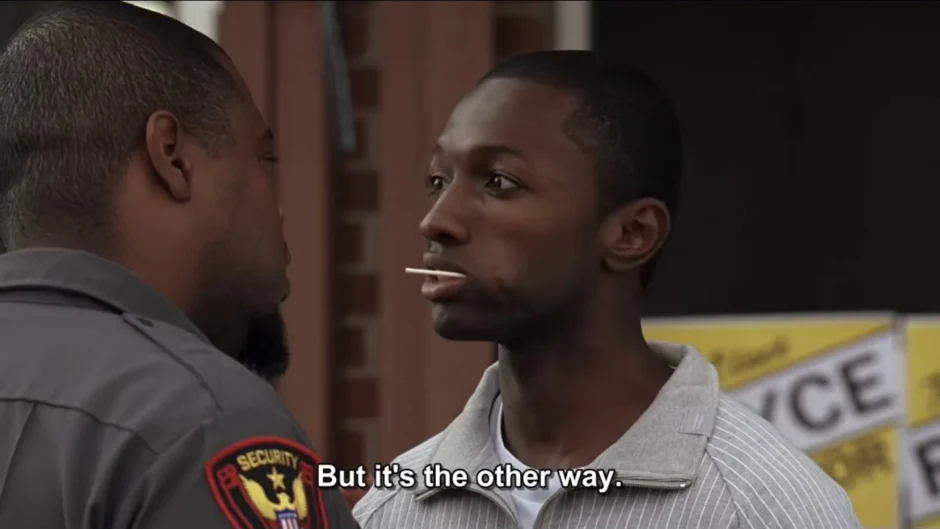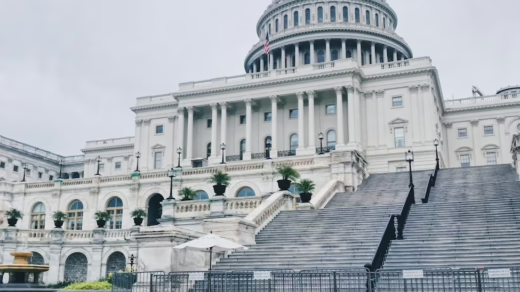Okay, everybody open up your bibles (or whatever you call them) to Psalm (or whatever you call it) one. Not One Psalms (there aren’t multiple books of Psalms that I know of*), but the first psalm (the capitalization here is getting confusing).
I guess before we get going, though, I should note that I know this particular psalm well. And to tell you why would require quite a bit of backstory. But this is my blog, so let’s do a backstory.
The church I guess you could say I largely grew up in was a fundamentalist Christian church. Not evangelical: you see, there was quite a lot of heat between the fundies and the evangelicals. We believed that every word of the bible is divinely inspired; they believed in, well, who knows what they believe in except rock music in worship, selling out to save souls, and a cynical money grabbing scheme. The first one in that list is about to become pretty relevant.
But, like a lot of my fellow evangelicals, we spent a lot of time at church. Sure, we did the standard Sunday school and worship service, but we also did Sunday night hymn sing (with bible study), the Wednesday bible study (with hymn sing), Friday night youth group (with bible study and hymn sing), and various other events spread around throughout.
One thing we did not do, though, was listen to rock music. Well, not just “rock.” Jazz, swing, country, definitely not rap. You see, as my youth group leader explained, God’s music was as such:
- Melody
- Harmony
- Beat
Whereas, the devil’s music was like thus:
- Beat
- Harmony
- Melody
Those kids and their loud music. But you can probably honestly see where they were coming from. It makes sense from a totally superficial sense, if you have never listened to “contemporary” music for more than the two seconds it takes to shut it off (before the devil gets your soul). The devil is just God upside down, so his music would be as well.
Look, there’s a lot of other things to unpack, but let’s just do this one post at a time, shall we?
So, those of us pious fundamentalist Christians spent a lot of time listening to purely non-rock Christian music. And there wasn’t much of it. Sure, they’d sprinkle in some orchestral arrangements of 18th and 19th century composers, but nobody wants to listen to that too much. So we had to basically listen to tapes we could buy at the (very not-) local Christian bookstore.
And we all listened to Patch the Pirate.
Look, this might be a little embarrassing, but Patch the Pirate kicked ass. He lost an eye back in the day, and had to wear an eyepatch. Kids started calling him Patch the Pirate. He took that persona in full effect, and with it, wrote a ton of songs and stories for little fundamentalist Christian kids. And his songs were absolute bops for little fundamentalist Christian kids (and the more grown up songs were way better than the 100-year-old hymns we had to sing three times a week). Look some up, or I could give recommendations. Either way.
But, what he really sold were these cassettes that were a fun story for children, interwoven with proper Christian music (with no drums—although our youth leader did almost ban him when he released a song with a steel drum). And one that I listened to a lot was The Friendship Mutiny. Honestly, I couldn’t even tell you what it’s about now, but I remember really digging it. Something about friendship and pirates, I’m sure.
So now we get to why I know the first psalm. As a proud former member of the KJV community, I, and Patch the Pirate, know it best in its original English. And this is how I know the song:
So, now that you’ve heard that, let’s get into the psalm. It’s not a lot, but the previous was kind of a lot, so this part will be easier. Let’s go instead with the NRSVUE, which is one of the better translations I guess, at least the scholars tell me so. The words are different so I don’t know them as well. But it is headlined “The Two Ways” so we’ll go with that.
Time for the first way!
Happy are those
who do not follow the advice of the wicked
or take the path that sinners tread
or sit in the seat of scoffers,
2 but their delight is in the law of the Lord,
and on his law they meditate day and night.
3 They are like trees
planted by streams of water,
which yield their fruit in its season,
and their leaves do not wither.
In all that they do, they prosper.
I honestly haven’t spent a lot of time meditating over this, even if I did spend a lot of time listening to that Patch the Pirate song. There’s a very Nietzsche-esque through line in that first verse, equating “scoffers” with the “wicked” and the “sinners.” Not sure how he would feel about me saying that, but the man really hated cynics (“scoffers”).
What I can say, though, is this first verse is pretty spot-on. Don’t follow the advice of the wicked (Bernie Madoff), or take the path that sinners tread (put down your phone and stop gambling—oh wait that’s not a sin), and lol the seat of the scoffers, I’m sorry, but I remember earnest preaching about scoffers back in my fundamentalist years and it still seems like the least important thing that they made so important.
Second verse: Studious bunch. Honestly, I work in law (but I am not a lawyer) and can’t really see the delight in studying law, but as a guy who reads a lot and gets too deep into lore: yeah, there is some delight there. We’re talking about people thousands of years ago without Apple TV. Any lore to explore would be absolutely great.
Third verse! Robert Frost definitely stole this shit. Keeping in mind that the ancient levant was largely horticultural (trees, being practically immortal, deal better with wild changes of seasonal rain and drought), of course we would be using tree/shrubbery metaphors.
As a former Christian fundamentalist (with all the biblical scholarship problems that brings to the table), I have been trying to read the Old Testament (Tanankh) more with an eye to what it would have meant otherwise the people back then (and now) who are not Christians, but there are two words in this particular part that will definitely be expounded on by our New Testament (Fanfic) friends: path and fruit. Jesus talked about the path; Paul talked about the fruit. They knew what they were doing.
Anyways, time for the second way!
4 The wicked are not so
but are like chaff that the wind drives away.
5 Therefore the wicked will not stand in the judgment
nor sinners in the congregation of the righteous,
6 for the Lord watches over the way of the righteous,
but the way of the wicked will perish.
Well, first reaction: crap do I have to rethink my “not reading the new testament” stance into this? We have the “chaff” right there.
No, and I am not going to put the recent murder of a wicked person into it. (Although I guess I just did).
First, we are told “the wicked are not so.” This is a great line, even without the second half of the sentence. It goes hard. And, what is interesting is we switched the metaphor from trees to grain. Trees rule; grain drools.
You see this a lot in the biblical and other ancient levant literature, like there’s a major gulf between the trees (which have always been there) and the new-found agriculture (which is “new). But let’s move on, I’m running out of space (lol).
The wicked will not stand in the judgement (spelling). That’s interesting, considering everything people have thought for a long, long time. However, sinners will not stand in the congregation of the righteous—that’s less surprising. That’s just what we call obvious. The Lord watches over the way of the righteous (watches—not anything else: ask Job). The way of the wicked will perish: Well, I wish it would.
I guess what we need now is some kind of way to wrap it up. The good: they’re good. The bad: they die. Wishful thinking, but honestly, even at this first psalm, I think that’s what the book of the psalms is all about: wishful thinking. We don’t write songs just to describe—we write songs about wishes, or about denial, or about anger, about jubilation we know will never last forever. I had a philosophy professor that said that nobody ever wrote a good love song (he may or may not be wrong), but it’s because songs supposed to be complicated. You have to tell a story, and “everything is fine” is not a good song, because it’s not a good narrative.
This psalm has a narrative, no matter how simple. It says the good will find happiness in their goodness and the bad will be tossed away. Also, most importantly: tree good; wheat bad.
* there is, though, an extra psalm.




